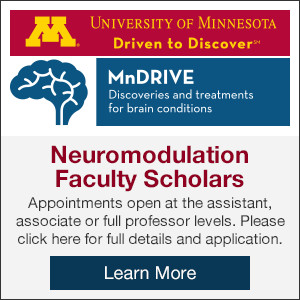 Dr. Koroshetz was selected by Dr. Francis Collins as Director of NINDS in June of 2015. Previously, he served as Acting Director and before that as Deputy Director of NINDS under Dr. Story Landis. He directs program planning and budgeting, and oversees the scientific and administrative functions of the Institute. He holds leadership roles in a number of NIH programs including the NIH’s BRAIN Initiative, the trans-NIH Pain Consortium, and the Neuroscience Blueprint. As Deputy Director he helped start the Traumatic Brain Injury Center collaborative effort between the NIH intramural program and the Uniformed Health Services University, and the multi-year work to develop and establish the NIH Office of Emergency Care Research to coordinate NIH emergency care research and research training.
Dr. Koroshetz was selected by Dr. Francis Collins as Director of NINDS in June of 2015. Previously, he served as Acting Director and before that as Deputy Director of NINDS under Dr. Story Landis. He directs program planning and budgeting, and oversees the scientific and administrative functions of the Institute. He holds leadership roles in a number of NIH programs including the NIH’s BRAIN Initiative, the trans-NIH Pain Consortium, and the Neuroscience Blueprint. As Deputy Director he helped start the Traumatic Brain Injury Center collaborative effort between the NIH intramural program and the Uniformed Health Services University, and the multi-year work to develop and establish the NIH Office of Emergency Care Research to coordinate NIH emergency care research and research training.
Before joining NINDS, Dr. Koroshetz served as Vice Chair of the neurology service and Director of stroke and neurointensive care services at Massachusetts General Hospital (MGH). He was a professor of Neurology at Harvard Medical School (HMS) and led neurology resident training at MGH between 1990 and 2007. Over that same period, he co-directed the HMS Neurobiology of Disease Course with Drs. Edward Kravitz and Robert H Brown.
A native of Brooklyn, New York, Dr. Koroshetz graduated from Georgetown University and received his medical degree from the University of Chicago. He trained in internal medicine at the University of Chicago and Massachusetts General Hospital. Dr. Koroshetz trained in neurology at MGH, after which he did post-doctoral studies in cellular neurophysiology at MGH with Dr. David Corey, and later at the Harvard neurobiology department with Dr. Edward Furshpan, studying mechanisms of excitoxicity and neuroprotection. He joined the neurology staff, first in the Huntington’s Disease (HD) unit, followed by the stroke and neurointensive care service. A major focus of his clinical research career was to develop measures in patients that reflect the underlying biology of their conditions. With the MGH team he discovered increased brain lactate in HD patients using MR spectroscopy. He helped the team to pioneer the use of diffusion/perfusion-weighted MR imaging and CT angiography/perfusion imaging and intra-arterial reperfusion therapy in acute stroke.
Active in the American Academy of Neurology (AAN), Dr. Koroshetz chaired the professional organization’s Public Information Committee, led the AAN’s efforts to establish acute stroke therapy in the US, founded the Stroke Systems Working Group, and was a member of the AAN Board of Directors.

